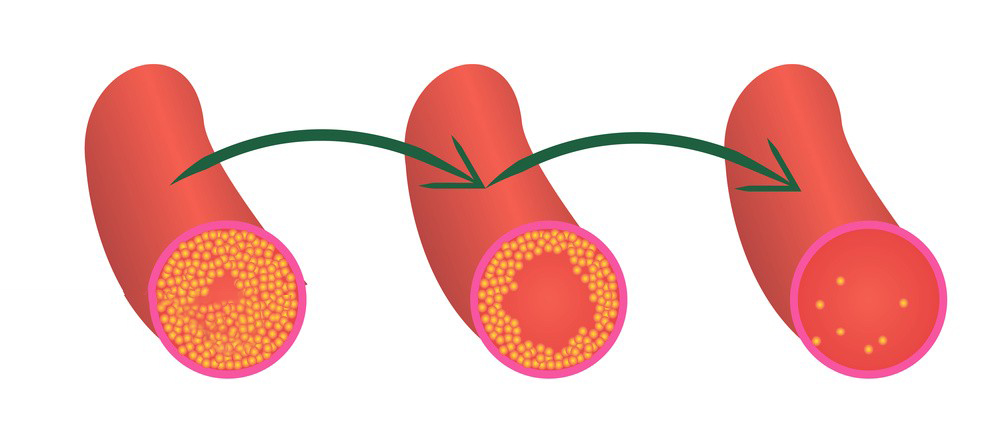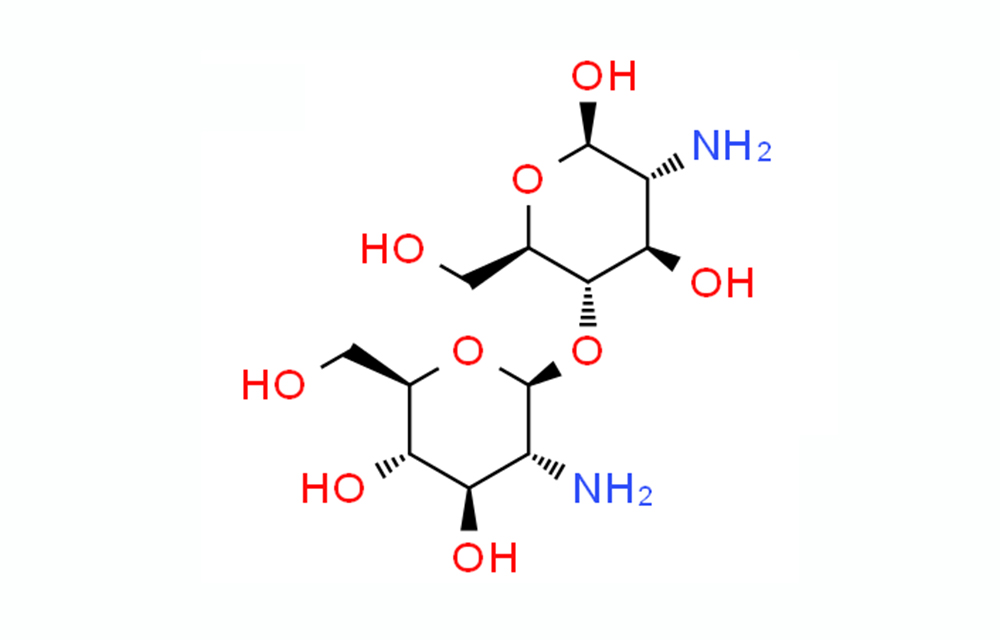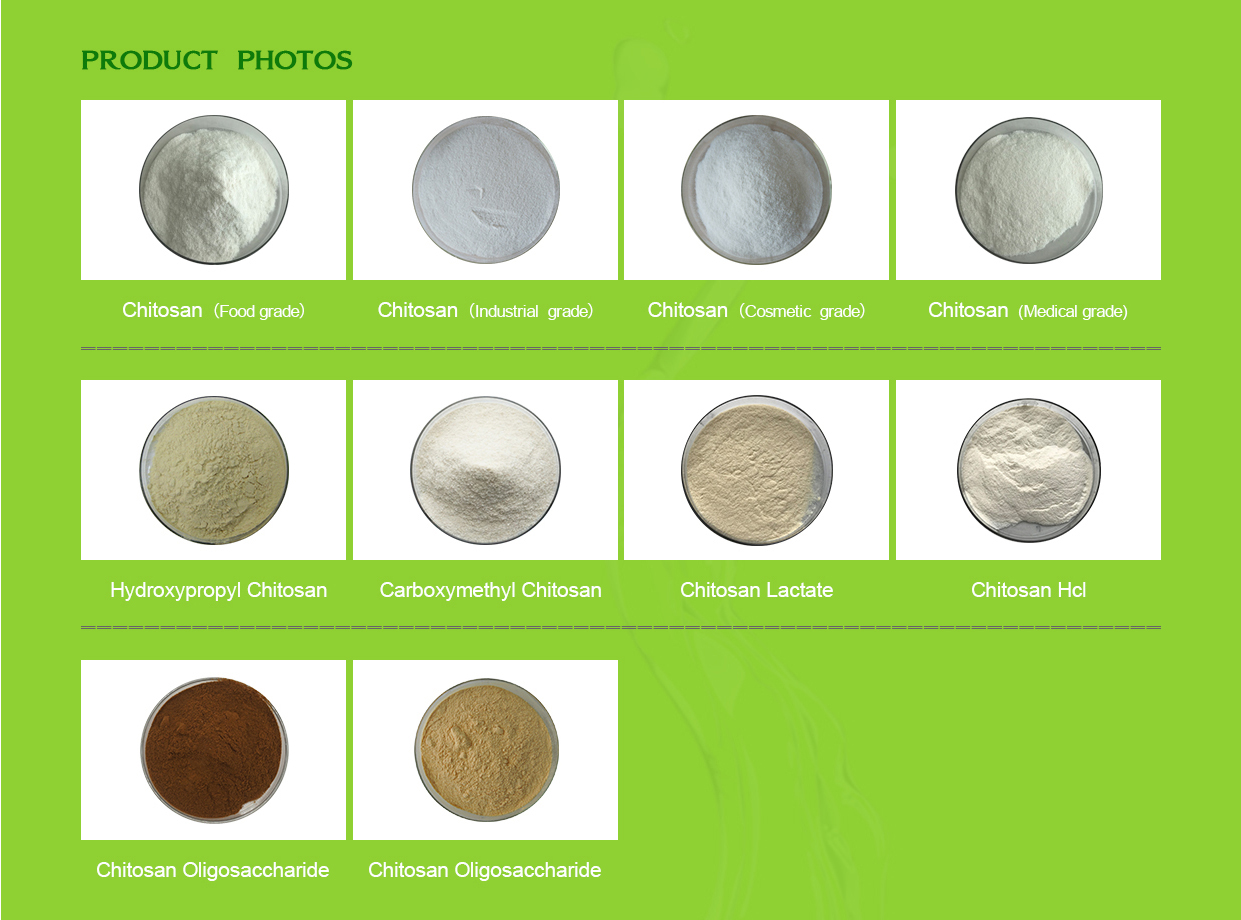Origin of Chitosan Oligosaccharide
Chitosan oligosaccharide is a natural biopolymer derived from chitin, a structural component primarily found in the exoskeletons of crustaceans (such as crabs and shrimp), insects, and the cell walls of fungi. Chitin, a polysaccharide, is treated through processes of deacetylation and hydrolysis, reducing its molecular weight to produce chitosan. Further enzymatic or chemical hydrolysis is applied to chitosan to break it down into shorter-chain molecules, resulting in chitosan oligosaccharides.

Properties of Chitosan Oligosaccharide
- Water Solubility: Unlike high molecular weight chitosan, chitosan oligosaccharides (COS) are water-soluble, which allows for greater bioavailability and ease of use in various applications.
- Biocompatibility: Chitosan oligosaccharide is biocompatible and non-toxic, making them suitable for use in biomedical and pharmaceutical applications.
- Antimicrobial Activity: Chitosan oligosaccharides exhibit strong antibacterial, antifungal, and antiviral properties, which makes them valuable for medical applications and in food preservation.
- Biodegradability: Chitosan oligosaccharides are biodegradable, which supports their use in environmentally friendly products, especially as alternatives to synthetic polymers.
- Antioxidant and Anti-inflammatory: Chitosan oligosaccharides have potent antioxidant and anti-inflammatory properties, which are beneficial for skincare, wound healing, and therapeutic products.
- Low Viscosity: Due to their short chains, Chitosan oligosaccharide have low viscosity, making them suitable for applications requiring fluidity, such as sprays and liquids.

Introduction and Applications of Chitosan Oligosaccharide
Chitosan oligosaccharides have garnered significant interest due to their versatile properties and applications across multiple industries.
- Biomedical Field: Chitosan oligosaccharides are used in wound dressings, drug delivery systems, and tissue engineering due to their biocompatibility and antimicrobial properties. Their small molecular size allows them to penetrate biological barriers, which enhances drug delivery.
- Agriculture: Chitosan oligosaccharide is used as a biostimulant to enhance crop growth, improve resistance to pests, and protect plants from disease. It is considered a safe and eco-friendly alternative to chemical pesticides.
- Food and Nutrition: As a dietary supplement, Chitosan oligosaccharides supports gut health by promoting the growth of beneficial bacteria and modulating immune responses. In food preservation, Chitosan oligosaccharides prevents microbial growth, extending shelf life.
- Cosmetics and Skincare: Chitosan oligosaccharides acts as a moisturizing, anti-inflammatory, and anti-aging agent in skincare products. Its antioxidant properties help protect skin cells from oxidative stress.

Chitosan oligosaccharide is gaining popularity in sustainable and green chemistry due to their renewable origin and biodegradability. Their versatility makes them a valuable component in advancing eco-friendly innovations in various fields.
